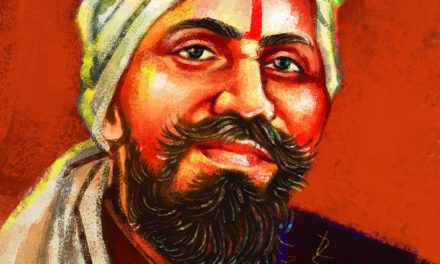VOLUME VII – CHAPTER 2
EXPLORE, EXPERIENCE AND EXECUTE
DO YOU WANT TO BECOME A CHAMPION PRINCIPAL?

On the first day of joining duty, a Principal convened a staff meeting in the afternoon and his opening remark was:-
“I have heard enough of your school.
I have come to set it right.”
With just two sentences and fourteen words he had sealed the fate of his tenure in the school. This is the mark of immaturity and arrogance. By saying, “Your School” he at once had alienated himself from the staff and with the other 3 words, “Set it right” he had categorised them as the Aegean stables. We can understand how boisterous, volatile and turbulent his tenure in that school would have been, Fire Works, Lightning Thunder every day.
Before starting operations a Commander conducts a recce, sends a reconnaissance team to explore the area, get all information about the other army and the plans his moves. So also during the first 100 days you should calmly observe how the school functions on the old pattern. Notice the pluses and the minuses of the staff, the loopholes and the lacunae; then slowly start changing the pattern with inputs from the staff themselves. You have to Engineer your success.
Every day, every moment will be a challenge to your balance. You can display two emotions – tell yourself :-
a) I am very excited I find a great opportunity. I am going to achieve something great.
OR
b) I am so afraid, anxious and uncertain. I have to face a serious situation, I am bound to falter and fail.
These are your two sides.
When a staff member enters your room, do you consider him as a villain and you as the victim? Don’t forget he may also think in the reverse manner. Why can’t both of you think that you both can coexist?
To face a staff meeting agitated and exercised over something, the author always used to have in their midst a couple of teachers who are very calm and confident. That would make a lot of difference to the proceedings. They will act as shock absorbers, direction changers and step down transformers.
The author used to tell his staff to keenly observe the habits and practices of children, their tendency and taste for music, dance, art or games, athletics or speaking.
Normally we say that talent is a gift from above, but we don’t think about the unusual circumstances that go into the making of a “Champion.”
Take a little time to think about what Mathew Syed – a two time Olympiad and a three time Commonwealth Table Tennis Champion says in his book, “Bounce:- How the Champions are made”.
“Circumstance and opportunity are vital, what is certain is that if a table was given at eight, If I had a brilliant elder brother to practice with, If I had been trained by one of the top coaches of the country, If I had practiced for thousands of hours in my teens, – because of all these only I have become number one in England”.
Discover the talent in a poor boy or an affluent one. Find out ways of encouraging him with years of painstaking practice and dedication. It is the quality and quantity of practice that matters. If year after year many students of MOP Vaishnava College get selected for the University Team in various games, it is the continuous encouragement and coaching given to them in the college.
Mathew Syed say, “Tiger wood had accumulated by his fifth year more hours of practice than most of us achieve in a life time”.
Mozart was schooled in the Piano by his father from the age of two; by the age of six he had accumulated and astounding 3500 hours of practices.
Tell your students, “The incalculable hours of practice, the many years of ingraining excellence, the thousands of baby steps taken by world class performers to get to the top – the skills would not seem quite so mystical or so in born.”
We have a practice in schools to ask a teacher to take a subject he/she is not proficient. The author knew of a teacher (M.A. in English) in a school run by an autonomous body who was asked to teach Social Studies. TGT (Science) asked to teach all the 3 parts – Physics, Chemistry and Biology. He may not be able to teach one of them – Biology. Each subject needs a different orientation. Syed gives a beautiful example to explain this difficulty. “The time required to return a serve in tennis is approximately 450 milliseconds; but there are less than 250 milliseconds in which to return a smash kill in Table Tennis. I wonder why I could return the latter and not the former.” That is the beauty and the irony!
To the author’s rescue came a class VIII boy who came to his room one day and said, “Sir, I have an idea, would you like to hear it? The author said, “I can’t find any better work than that. Come on, go ahead.”
The boy mentioned the difficulty of the Science teacher in teaching Biology and said, “Sir, wouldn’t it be more useful if you ask the Biology teacher to teach Biology for both the classes and the other teacher to teach Physics and Chemistry for both the classes. By this we will get the best out of both of them”.
The author gave him a hug and a handful of chocolates for the beautiful suggestion.
The greatness of Kendriya Vidyalayas lies in the freedom to the children to air their opinions without fear.
NO PUFFED UP EGO

The author had seen quite often new Principals (sometimes even some seniors) suffering from power phobia. Jason Sweig, a finance columnist of the Wall Street Journal capsules this beautifully. He says, “Inside each one of us, there works a con artist who is forever cajoling us into an inflated sense of our own power.” They suffer from “Positive Illusions”. There is big gap between what we are and what we imagine ourselves to be – a bloated sense of position and pride. We assume to ourselves a big dimension and go out to face the outside world with that mental image that creates a lot of relationship problems.
At K. V., Coimbatore, the author tried to use his influence and earlier contacts with the local elite for the benefit of the school. So he initiated several activities, programmes and projects. When the first program on Independence Day went off successfully with the participation of a couple of industrialists associated with the freedom movement, the author convened a staff meeting to analyse, assess and plan further. When some staff started praising him, he said, “I sense danger in your praise. One success or a series of successes should not go into our heads. This is called, “Hot Streak”. This will expect us to be right again and make you feel as the legendary C.E.O. Jack Welch felt he was 6’4” with hair (he was short and bald). When you are proven right several times over, that should be a warning signal to you to combat your own confidence and super-man feeling.
One school in Coimbatore had been consistently getting cent percent results for 15 years. There was a sense of euphoria in the first three years. But from the fourth year onwards the 100% results did not evoke any surprise or elation. It was taken for granted as a routine affair. But in the sixteenth year when the result was 95% there was a lightning response to this unexpected change from the Management.
At K.V., Sambalpur, immediately on taking over, the author found that the almost of the local press and the community felt that the school was
Pro – Hindi and anti-Oriya. So the author told the Art Master Sri. Bholonath Naick, “Prepare a new name board for the school with Kendriya Vidhyalaya in bold Oriya letters (Semi circular fashion) and Hindi and English version in small letters. As soon as this new board was erected, it created a “HALO” effect. That helped the author to achieve many things for the school with local community in his two years tenure there.
But in K.V. HVF, Avadi, the author met the incumbent Principal on 14th July but could not take charge as he was not ready to handover. As the author had not taken over officially and also had to rush to the station to catch the G.T. Express to Delhi, he did not call on the Chairman of the school Management Committee (General Manager of Heavy Vehicles Factory – Avadi – Sri. Madhavan). On 22nd when he returned from Delhi and took charge, he went to see the Chairman who first asked him, “You came on 14th itself but you did not come and take my permission to go to Delhi.” The author explained that on that day he had not become Principal yet and was on joining time and the Delhi meeting was already fixed by the KVS Head quarters. He also said, “If I had joined duty on that day then I would have definitely met you to convey my regards and informed you of the KVS Head quarters. Program and also handed over to you a letter requesting for leave on duty. I have been Dy. Director of Training, South Zone, Ministry of Community Development, Government Of India for 5 years before joining in KVS. I am a stickier to protocol and I would not have committed that indiscretion.”
But this did not cut much ice with his puffed up ego. This created a “Negative Halo” about the author in his mind and its negative fallout from him was there all throughout his two year tenure there.
So you have to be careful to create (at the beginning of your tenure), a “positive Halo” and avoid creating a “Negative Halo.”
You may be setting up different committees for different purposes. It will be helpful (as it was for the author) to remember Bill Gates’s statement:-
“Triangular partnerships between wealthy, rapidly growing and poor countries offer great examples of innovation with impact.”
Based on this advice, the author always used to put one senior teacher (above 10 years experience) as Convener, two teachers with 6 – 10 years experience and three teachers with 1 – 5 years experience. This assorted toffee pack always produced good results. It was a good recognition for the senior, appreciation for the middles and an opportunity for the fresher’s.
THE GREATER THE PROBLEM, THE MORE CALM YOU SHALL BE

Sometimes even without your invitation, a crisis situation may arise. In that case the normal tendency is to rush in for solutions. But in 1979 at KV, HVF, Avadi when such a situation arose what the author had read in his Indian History class in 1944-45 came to his aid. General Mansingh was told that the enemy was at the gate and Akbar the Emperor had to lead the army. He went to get Akbar but found him in the garden listening to Tansen’s divine music. Birbal stopped Mansingh from disturbing Akbar who he said already knew about what Mansingh wanted to tell him. Mansingh became impatient and asked Birbal, “The city will be destroyed. He is listening to music. Has he gone mad?” Birbal replied, “No. He is not listening to the music. He is working out his battle strategy.” Mansingh rubbished it and said, “What strategy in Music?” Birbal laughed heartily and said, “That is why you are just a General and Akbar is the Emperor.”
What Birbal meant was that ideas and plans can come from odd places and situations. The gap between a leader and a follower is in their ability to see the similarity in dissimilar things. Followers need clear specific orders.
Remembering this, the author asked the music teacher to bring the tape recorder and the 90 minutes audio tape of a beautiful Thodi recital in the Nadaswaram by T.N. Rajaratam Pillai. He asked the Vice Principal to sit with him and told the head clerk to close the door and not allow any disturbance for the next 1 ½ hours. He closed his eyes and started listening to the music. The senior staffs were puzzled because just then the Principal had told them that
the HVF Labour Officer had informed that the next morning 2000 workers are going to picket the school. The Head clerk told them, “Wait, without reason and meaning our Principal will not do anything.”
At 3 p.m. the author convened a staff meeting and gave detailed instruction as to what each one should do on the next day to meet the situation. One teacher asked him, “When you have received such news, how could you listen to music?”
The author smilingly told him about the story he had read in class X, 35 years back and observed all the instructions I gave you were worked out during that 1½ hours, when I prepared our battle strategy. Listening to music which calmed my nerves gave me the peace of mind to think about the problem.
Next day the plan worked beautifully and the workers dispersed peacefully shouting, “Principal Zindabad.”
PARTNER YOUR CUSTOMERS TO SUCCESS

At KV, Sambalupur the morale of the staff was low when the author took over in 1971, June. The students were rudderless. The community was apathetic towards the school. Slowly the author tried to salvage the situation and at the end of the year he prepared a pamphlet listing out what all the school had achieved during the year and what it proposed to do next year. He requested the students of classes 8 – 10 to make individual home visits in the town, to distribute the pamphlets and explain the school’s achievements. This exercise resulted in a total transformation of the society’s attitude towards the school.
The author’s wife’s maternal uncle Mr. Chandramouli was Area Sales Manager of Brooke Bond at Coimbatore during the 1950’s. During summer he caught hold of students of classes 9 & 10 living nearby, gave them each a 200 grams tea packet free and asked them to visit houses and distribute free tea sample packets. He gave them also at the end of the month a sizeable sum as commission and also a prize for the first three students who visited the most number of houses. He used to say, “I am trying to influence the Market through my youth Brigade.”
Now in marketing, this team, “influencer – marketing” has gained much ground through twitter, orkut, etc. Brand marketing is done.
Rohit Ohri, executive chairman of the Dentsu Group has an idea for you to try viz. Cross switch marketing i.e. “The creation of scenarios to move targets and capture their hearts” – to flip a switch in the consumer’s mind.” Can you do this with your consumer / customer – parents, staff and students?
The, “Dentsu way” means creating in their minds, one uniform lingering after thought, one key identifier to resound in their minds about your school. The key according to Rohit Ohri is to break the existing mould and “Think large, think deep and think wide.” Partner your customers to success. This shall be your Taraka Mantra.
DEVELOP HOMOGENOUS HETEROGENEITY

You can take a lot of lessons from the Sports Field. We have an ever smiling sports person in Harsh Bhogle, the ace Cricket Commentator and a Management expert in his wife Anitha Bhogle, in their scintillating book “The Winning Way” they caution you by saying that history judges, leaders by the quality of decisions they take; the outcome may not always be beneficial, but the boldness and intent behind the decision are what matters whether in war, business, or sport. Decision making is an integral part of leadership and those who dilly-dally or fail to take a call are remembered as weak and ineffective leaders.”
Leadership may weigh you down, may be a burden to take on any responsibility or your personality may blossom – as it did with Sachin and Sourav Ganguly respectively.
As a leader you must be hear-a-holic – open ear and mind keen to locate best ideas from any corner, perhaps least expected.
Consensus is good. Hearing many is good. But you can’t make everyone happy with your final decision. If you do that you may fail. Be bold, be courageous; have conviction to take decisions and stand by them.
The staff room will appear as a heterogeneous group. You have to make it homogeneous. Staff from various States, speaking – various languages. Maharashtrians dislike people from U.P. and Bihar. Oriyas think Bhiharis have taken away their prosperity. An eternal distrust is between Bengalis and Assamese. Punjabi wants to dominate. The intellectual arrogance of the Tamilians, The Union mentality of the Keralites, the high decibel Andhras, the cultural arrogance of the Bengalis, the alienation feeling of the man from the North East, the commercial angle of the Gujaraties. All these present in their native States spill over into the staff room.
Devdutt Patnaik gives a beautiful simile to tackle this. In Mount Kailas Lord Siva was with his family. The deer came running hunted by the tiger. Shiva took the deer in his hand. The Tiger said, “I will go hungry.” Parvathi took it as her vehicle. The serpent came to chasing rat. Ganesha made the rat as his vehicle and the serpent as an ornament around his waist. The peacock wanted the serpent. Karthik made it as his vehicle also. The five live peacefully in Kailas. Like this you have to play all these four roles. You have to create as Herbert Spencer said, “A homogeneous heterogeneity, a garland consisting of different flowers.”
In the animal world a tiger will not harm another tiger. But among Humans, “A” thinks that he is a tiger and “B” a deer. Hence all the trouble happens.
The author used to form committees with staff from different States and make the committees compete with one another. And that competition used to weld the members.
From experience the author had learnt one valuable lesson – when there was some friction, some non understanding, some heart burn, some abrasiveness, some cold shouldering, some lack of warmth, some absence of meeting of eyes – then he understood that if the relationship had not ended well, then perhaps it did not start well.
MAKE EXCELLENCE YOUR SIGNATURE

Do you want ‘Excellence’ to become the signature tune of your institution? Then you have to find answers to 5 questions. According to Scott Keller and Colin Price in their “Beyond performance”:-
These are 5 ‘A’ s.
a) Aspire – What is your goal?
Set your objective juxtaposing reality with intuition.
b) Assess – Evaluate your strengths and your preparedness to
proceeding towards your objective.
(Field Marshal Sam Manek Sha told Indira Gandhi in
1971) “I am not prepared. Give me six months time.”
c) Architect – What are your plans to reach your goal? How do you
propose to march on?
d) Act – Actually from the first step, how measured are your steps? Have you picked the talented team? Have you put the infrastructure in place? Have you organized your annual activity calendar? Have you made parents partners in the school’s progress? Have you ensured staff engagement? Have you empowered them? Have you fixed accountability?
e)Advance –Have you evaluated the school’s performance? Have you identified the loop holes and the bottlenecks? How do you plan to go forward? How deep and thick is the staff’s involvement in this “Go forward process?” Have you put in motion – “Kaizen” – capacity for continuous improvement?
IS YOUR SCHOOL AGEING?

How did you feel when you saw the first wrinkle in your cheek? How did your wife react when she discovered, the first strand of grey colour hair behind her ear? You both screamed within yourself, Oh! I am ageing? Anyone reaching 50 is bound by the phenomena.
Have your thought that your school also will suffer from, “Age limits.” Yes it is bound to happen. School also will age when you near your Golden Jubilee. It is high time you become serious about a little heart searching and stock taking. Your school brand is not timeless. Some have a long run like Sachin, some have a brief fireworks- shine and splendour like his school mate Vinod Kambli.
Find out if you are ageing in your consumers’ eyes.
‘Pears’ soap was the soap of the elite for a long time. That was the King Royal for nearly 60 years. But it has now been over shadowed by ‘Dove.’
When, how & why did Pears start ageing? What did Dove have or do to capture the attention of propel?
Youngsters no longer think, “Pears is for me.’’ Do your parents think, “This is not the school for my children?”
What do you think about the signs of ageing for the school?
a) A large turnover of staff?
b) Too many TCs going out.
c) Decrease in the number of parents seeking admission for their next child.
d) Decreasing number of parents on the Annual Day.
e) Parents talking about lack of life and glitz in the school program.
f) Lesser number of activities.
g)Lesser participation in external competitions.
h) Steady fall in results.
i) Frequent complaints from parents about the staff.
j) Poor maintenance of the school.
k) Over growth of vegetation in the school campus.
l) Increase in wall writing in the toilet and corridors.
m) A creeping sleepiness and slovenliness in the school atmosphere.
n) Parent who has a child for admission does not put his child in your school, but recommends it to his neighbours’ child.
o)Erosion of rapport among the staff.
p)Students’ lack of confidence in their teachers.
q)Too many teachers above 50 years.
r) Slow eclipse of sports activities.
s) Staff not drawn by higher authorities for important committee work.
t) Declining respect for the school in the society.
u) Negative references about the school in the press.
v) Corruption, favouritism and nepotism in the school administration.
w) Decrease in the number of children admitted from local population.
x) Increase in the number of students going out to a neighbouring school.
y) Teachers being asked to bring in more students.
z)School facilities being used for non-education purposes.
Your health is a major factor in your decision making process. According to a research done by Mirjam Tuk, Visiting Professor at Insead Business School, persons who are able to retain a full bladder have more self-controll. If so you will be more controlled and calm in your responses, be less impulsive in your decisions and choices and think twice before acting. The author had seen Principals who were impulsive and jumping to conclusions, preferring the choice available immediately and be more agitated in their reactions suffering from incontinence.
Mirjam Tuk suggests that you may install a soft water-fall which will induce self-control. Now electrically operated water-fall photos are available. You may install one in your room, the staff room and the office for a positive effect.
You may be inclined to invite guest speakers to the school. Any way you may have to pay for most of their time. This has become the norm now. Take care. The overt motivational speaker who does not expect a monetary reward, simply creates a gung-ho feeling and leaves it there. The effect of his talk lasts till he leaves the school campus or a day more.
The other is the strategist who sits in style and ignites the spark which changes the mindset of your staff and students. He has to be compensated heavily. May be he is worth it.
TRY PEER LEARNING

Have you tried any variation in the teaching learning model? Of course the usual top down from teacher to an eager or unwilling student. The second is peer to peer where one student teaches another. And the teacher is only a facilitator. Mrs A. Jayalakshmi, PRT of KV, Ashok Nagar and Mrs. M. Visalakshi, HM of KV Minambakkam, Chennai tried this for several years. One boy / girl bright in English, Maths and Science taught these 3 subjects to a backward student in the 9th period, when there is no class for the Primary. Similarly one student bright in Hindi and Social Studies taught these two to a backward student in the 9th period. The teacher was sitting in her corner chair and doing her work. The bright students taught that day’s work to their friends and verified if they have understood, and helped them to do their home work also. If they had any difficulty in explaining an idea they approached the teacher for help. In recognition of their services they were given 5 bonus marks in these subjects in the Annual Examination and also a certificate on the Annual Day.
The third one is where the student teaches the teacher. Through this they, both learn. Such instances are just a few. In KV-IIT, Chennai in 1980s there was a student in the Humanities section, who had every day something new for the teacher.
The author had the benefit of peer learning-some intricate aspects of statistics from Sri. A. Shanmugam, PGT (Econ.) of KV-AFS, Avadi, some concepts in Physics from Sri. K. Swaminathan of KV-HVF, Avadi, some ideas in Chemistry from Dr. Mrs. Rajalakshmi and Mrs Seethalakshmi of KV-IIT, Chennai, some interesting ideas in Biology from Dr. Mrs. Jayalakshmi Jagannathan of KV-KVF, Avadi and Mrs. G. Malaiammal of KV, Coimbatore.
BUILD RELATIONSHIP

In marketing, the Chairman or President of a big Department Store chain suddenly walks into a store incognito, talks to the shoppers and staffs and learns about the deficiencies as perceived by them. Kevin Peters, President of the chain called, “Office Depot” used to visit his stores like this. From these visits he found out that his staffs were trained to stack the shelves, periodically to keep the toilets clean, but they had not been told or trained to build relationships with the customers.
This situation applies to our school also. We have asked our staff to teach well, to test properly, to train student for activities but we have not asked or trained them to handle parents well. They are out customers. We need them more than they need us. We have to get feedback from them and learn from it.
Once when the author visited the famous cloth store NALLIS in T. Nagar, Chennai, he found the owner Sri. Nalli Kuppu Swamy Chetti sitting on a chair along with 5 of his senior staff. All had the same type of chair while the author was talking to him about his writings on the Practice of Management.
He said, “Just a minute’, got up and rushed behind an elderly lady in her 40s leaving the shop with no cloth bag (company’s) in her hand indicating that she had not purchased anything. He brought her back to the shop, found out that the colour and design she wanted was not available in his shop. At once he called his production manager asked him to sit with her and work out a design of what she wanted. He then told the lady ‘Amma’ he will personally take this to our looms in Kancheepuram, sit with the weavers and explain what you wanted. In another 15 days, the saree will be delivered to you.”
He told the author, “All my staffs are trained to see the reaction of the customers and make them complete a purchase.”
The author decided to apply the Nalli technique in his Education Management and slowly trained his staff also in this art.
Sitting in his room, through the door he would see any parent going out from the office and if his face was not happy he would come out, call him and find out his problem and try to solve it. The staffs were asked to involve as many parents as possible in the conduct of various activities – occasions to get feedback.
The author used to walk slowly around the school, twice or thrice a day, to observe the teaching-learning going on in the classes, comment made by the staff and students as they were talking, the discussions in the staffroom and backroom talks in the classes by the back benchers. Attend functions in the Students’ Homes, community functions – all occasions to meet parents.
Once when the author asked a Science PGT as to how the parents feel about the experiments done by the pupils, he said, “To find out what they feel is not part of my job description” – an isolate!
In one school the author found several bound volume of Readers Digest, National Geographic, Scientific American Bhavan’s journal and was happy to learn that the librarian had an excellent rapport with the parents (a closed community) and got all these as gifts from them. They were very useful for the students’ project work.
Every minute in a Principal’s day is moment of challenge to his wisdom, mental alertness, stability, patience, humanism, tact. Every moment will become enjoyable if you see the charm in using it as an opportunity to learn, to prove yourself and to go forward. Problems arise only when you take a thing as a challenge to your position, power and authority.
~~~~~
ONE WHO KNOWS (VOL VII – CHAPTER 2)
– Dimensions of the Life and Work of a Principal –

620) One who knows that he has to get three components right:
a) His thoughts and feelings.
b) Processes to be aligned with his ambitions.
c) High energy levels.
621) One who knows to grow against all odds.
622) One who knows that decisions can be taken only with a calm mind.
623) One who knows how to create a ‘No Agenda’ time.
624) One who knows how to handle the occasional emptiness he feels.
625) One who turns every year into a year of ‘break throughs.’
626) One who fills spaces with his ambitions.
627) One who has, “Never allowed the behaviour of others to destroy his
Inner peace,” as Tenzin Gyatso pot it.
628) One who holds on to what he is good at and after some time becomes a synonym for that quality
629) One who advises the parents not to worry about what their child will become tomorrow, forgetting that he/she is someone today
630) One who advises the parents to spend two minutes daily to wave at the child when she/he goes to school by bus – give the kids the happiness and faith that the father/mother will stay back and look at them when they wave, and at that moment if your place is empty, that would stay in the kid’s mind – not anything else you would have done for her.
631)One who asks the parents to give the kids trust whenever they need it and answer any question that springs from them.
632)One who has learnt to accept disappointment without losing hope and believes that the greater the challenge the more glory in overcoming it.
633)One who says he can’t offer less because nature always offers its best without favouritism.
634)One who firmly believes that to be ahead, he needs to be updated, as otherwise he would become outdated.
635)One who has the Head of the Institution, sees his primary responsibility is to make it ready for the future.
636)One who knows the difference between the fact and the reality.
637)One who knows that practising 1000 different activities are not equal to practising one activity 1000 times.
638)One who realises that:
“I’ may be better than all my people.
But ‘I’ can’t be at all places,
And ‘I’ can’t do the work of all people.”
639)One who knows that “Successful delegation is in finding the right balance between giving autonomy and holding responsibility.”
One who knows that:
“Leadership is Decentralisation of work,
but Centralisation of responsibility.”
640) One who knows that “the person who follow the leader is usually the person who develops into a leader most rapidly.”
641)One who knows, “To Cherish the seed and throw away the weeds.”
642)One who knows to pause, ponder and proceed.
643)One who knows that doing something imperfectly over a period of time is far superior and yields better results than trying to do everything perfectly for the first time itself.
644)One who knows to identify his/her “weak spots” in his/her professional career or personal life and work on it daily. – And become a “DHINACHARYA.”
645)One who knows to walk around, fetch a glass of water, carry another for a colleague, carry a file to the office, collect a file from the office, wish colleagues on important days – public and personal share lunch, tap a shoulder, give a smile, a handshake – your work place would become a playground.
646)One who knows to tell a student,
“I Love You”, Which makes him understand that you love him
(and) Who know to tell a student,
“Thank you for loving me so much” Which shows that he (Principal), understands the student’s love.
647)One who knows to “Observe his emotions from time to time, especially during stressful and difficult situations, since he also knows that observation mode will help him to reach control mode easily and early.”
648)One who knows that he should not test the anger of a patient man.
649)One who knows that every student does bloom, just waiting to bloom and it is not a question of how, but just a question of ‘when’ – to that moment we have to be alert.One who knows that horizontal exposure with vertical expertise is the way for his future and tells so to all his staff.
~~~~~
EMINENT THINKERS (VOL VII – CHAPTER 2)
(Whose ideas have been adapted for Education Management
429) Rahul Gaina
430) Meera Devi
431) Chayos
432) Mary Barra
433) Sri Ram Ramachandran
434) Kramnik
435) Sanjiv Bikh Chandani
436) Regina Dugan Loves
437) Sandeep Narang
438) Jack Nicklaus
439) Venu Srinivasan
440) T.T. Srinivasa Raghavan
441) R. Thyagarajan
442) A. Sivasailam
443) Martin Pieters
444) Peter Casey
445) Ranga Rao
446) Padmashree Warrier
447) James Cameron
448) Michael Madone
~~~~~
SARVAM Vishnu mayam jagath: the Universe is saturated with Divinity; there is nothing here which is not HE; ISAA VAASYAM IDAM SARVAM. He is the base and the superstructure, the material and the manner, the inner motive and the outer movement. The body is the temple of the Lord; the atmosphere of this temple is by its very nature filled with Love for all beings. But man, overpowered by egoism, fouls it with envy and greed and so it festers with disease and distress. – Sri Sathya Sai Baba




